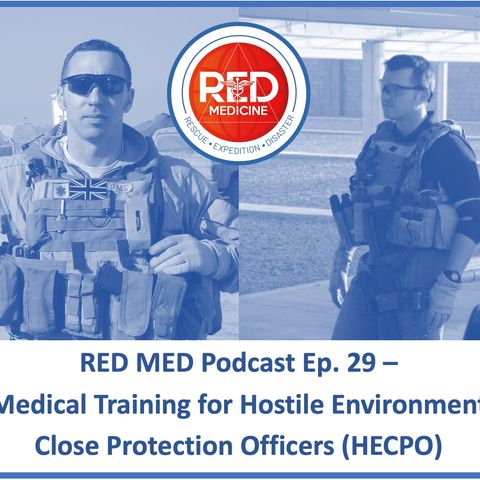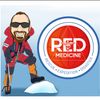Hi Dave, great point. We could have really gone down the rabbit hole with this, there are so many examples of differing scenarios. Remote medicine (including expedition, disaster, CP) really differs from place to place, scenario to scenario and client to client). Clients and principals often do take our advice. A large part of the role is risk mitigation through a thorough risk assessment, developing SOPs, advising clients and providing training. I've been on numerous jobs where military, diplomatic, corporate or industrial clients have headed advice and just as many where culture, image, reputation, recent incidents or just client character have dictated that we've had to compromise and do the best we could under the circumstances. Embassy jobs and likeiwse oil and gas CP jobs have gone from one extreme to the other with teams wearing body armour, weapons and carrying medical gear attached to their chest rigs or belts, all the way to the other side where local culture, the client or the law required weapons to be out of sight, no plate carriers could be worn and med bags were in the footwell of the car. Every situation is different and the guys generally balance the risk with the client needs, wishes and profile, and that will change from location and visit: visiting a police station in the desert may be differnt to a helicopter flight or a trip to a ministry in an armoured vehicle. 'Profile, dress and equipment may differ based on the threat, environmental temperature, the presence of the media or indigenous people. It depends' is the key but some are definately flexible, some are open, some follow our requirements to the letter and some go the other way and even try to be obstructive: human nature I guess. We could delve into the influence of the voluntary principles on human rights in security, which has influenced the extractives industry and their security posture, policies and influenced their corporate social responsibility, recruitment, sustainability initiatives and community relations strategies but again, it depends, the Middle East is different to Africa and again to Latin America. Apologies if that wasn't clear, there was so much content, we skipped over a lot of topics. I think risk management in general is a balance in remote areas. It would be nice to carry a 12 lead ECG on a high altitude expedition, along with a defibrillator etc but despite demonstrating a thorough risk assessment, someone has to pay for it, someone has to carry it and in some cases, not all, the risk Vs benefit dictates that other equipment is of higher priority (comms, stretcher, dexamethasone etc) but again, it depends. I now carry a small lightweight 12 lead ECG and wireless ultrasound, so no excuse! All the best and stay safe Dave. Regards. Chris


